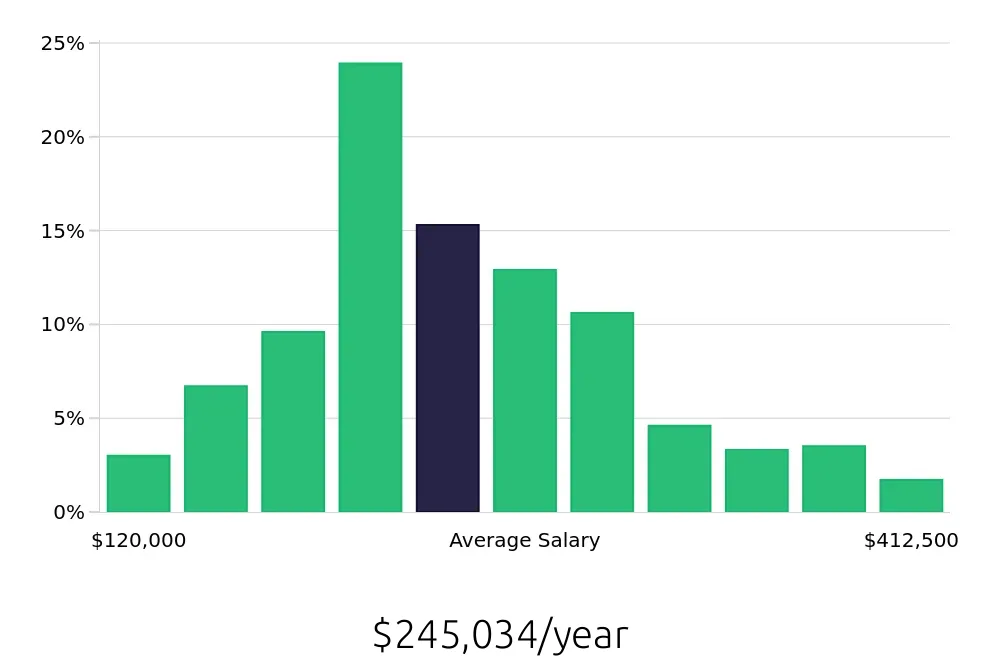Position
Overview
A General Dentist provides essential oral health care. They diagnose and treat problems with teeth and gums. This includes filling cavities, cleaning teeth, and performing routine check-ups. General Dentists also educate patients on proper oral hygiene. They work to prevent dental issues before they start. This includes giving advice on brushing, flossing, and diet.
General Dentists use modern technology to ensure accurate diagnoses. They take X-rays and use digital scans to examine teeth. They also perform procedures like root canals and extractions. These professionals often work in private practices, clinics, or hospitals. They may also offer emergency dental services. General Dentists aim to make patients feel comfortable and informed. They strive to improve the overall health of their patients' smiles.
Becoming a General Dentist involves a clear and structured path. This career requires dedication and a commitment to lifelong learning. The journey begins with the right education and training. Follow these steps to embark on a successful career as a General Dentist.
First, complete a bachelor's degree. This usually takes four years. A strong foundation in science courses is important. Next, apply to dental school. Dental school lasts four years. During this time, students learn about dental procedures and patient care. After dental school, a license is needed. This requires passing the National Board Dental Examination. Some states also need a clinical exam. Finally, many dentists choose to specialize further. This can involve additional training and exams.
The process to become a General Dentist includes:
The path to becoming a general dentist involves several key steps. First, a person must complete a bachelor's degree, which usually takes four years. This degree often includes courses in science and math. After the bachelor's degree, the next step is dental school. Dental school lasts four more years. During this time, students learn about dental procedures, patient care, and other important topics.
After dental school, new dentists must complete a residency program. This residency can last one to two years. It provides hands-on training and experience. Some dentists choose to specialize further. This can add another two to three years to the process. Overall, it takes about eight to ten years to become a general dentist. This includes time for education, training, and any additional specializations.
We are seeking a skilled and compassionate General Dentist to join our team. The ideal candidate will provide comprehensive dental care to patients, ensuring their oral health and satisfaction. This role involves diagnosing, treating, and preventing dental issues while maintaining a welcoming and professional environment.
Responsibilities:
Qualifications
A career as a General Dentist offers a rewarding path for those passionate about oral health. This role involves diagnosing and treating various dental issues, from routine cleanings to complex procedures. Dentists work in private practices, clinics, or hospitals, providing essential care to patients of all ages. They use advanced technology and techniques to ensure the best outcomes for their patients. This profession demands a strong foundation in science and a commitment to lifelong learning.
Choosing a career as a General Dentist comes with its own set of advantages and challenges. Understanding these can help individuals make an informed decision. Here are some pros and cons to consider:
The job outlook for General Dentists is promising, with an average of 5,100 job positions opening each year. This steady demand reflects the ongoing need for dental care services across the nation. The Bureau of Labor Statistics (BLS) projects a 4.4% growth in job openings from 2022 to 2032, indicating a positive trend for those entering the field.
General Dentists enjoy a competitive average annual salary of $200,870, according to the BLS. This compensation reflects the expertise and specialized skills required for the role. Additionally, the average hourly wage stands at $96.57, offering a lucrative opportunity for professionals in this field. These figures highlight the financial rewards that come with a career in dentistry.
For job seekers, the combination of steady job growth, competitive salary, and the opportunity to make a significant impact on public health makes a career as a General Dentist highly attractive. With a positive job outlook and strong earning potential, this profession offers both stability and the chance for professional fulfillment.
